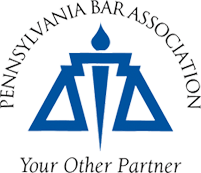Recent national controversy over the role of prominent national law firms in providing pro bono representation for alleged enemy combatants detained at the U.S. military base in Guantanamo Cuba offers important lessons for the public and attorneys on the duty of attorneys to provide appropriate legal representation for unpopular individuals even where those individuals may ultimately be determined to be criminals or dangerous to society.
Earlier this month U.S. Deputy Assistant Secretary of Defense for Detainee Affairs Charles "Cully" Stimson in a radio interview suggested that corporate clients of large law firms providing pro bono representation in legal proceedings involving alleged enemy combatants should force those law firms to choose between representing detainees and continuing to represent reputable firms.
Mr. Stimson�s initial radio interview remarks acknowledged the importance of pro bono legal representation, but suggested that such representation should be restricted to deserving persons or causes. Subsequently Mr. Stimson apologized for these remarks in a letter to the Washington Post and an official Defense Department spokesman immediately repudiated Mr. Stimson�s statements as not representing the views of the Defense Department or the thinking of its leadership.
These remarks have been widely criticized by the deans of more than 130 U.S. law schools, the president of the American Bar Association, and the president of the New York State Bar Association.
The United States Supreme Court in Hamdan v. Rumsfeld, 548 U.S. ___, 126 S.Ct. 2749 (2006), has recognized that even alleged enemy combatants have legal rights. In our legal system representation by an attorney is necessary to protect legal rights. An attorney should never be seen as endorsing the political views or actions of a client by providing legal representation. The Rules of Professional Conduct recognize this in Rule 1.2(b) which states: �A lawyer's representation of a client, including representation by appointment, does not constitute an endorsement of the client's political, economic, social or moral views or activities.�
This rule reflects the need to have attorneys provide legal representation for all people and is fundamental to our legal system. Pennsylvania lawyers have a proud history of zealous representation of politically unpopular clients. This history includes such legends of the Pennsylvania Bar as A. Leon Higginbotham for his early championship of civil rights issues; Joseph S. Lord, III for his defense of members of the Communist Party accused of plotting to overthrow the U.S. government; John Dickinson for his advocacy on behalf of the abolition of slavery; and Andrew Hamilton for his defense of John Peter Zenger against charges of seditious libel.
Law firms and attorneys in Pennsylvania are among those who have provided pro bono representation for individual detainees at Guantanamo Bay and Abu Ghraib in an effort to ensure that their minimum due process and human rights are protected. The Rules of Professional Conduct for attorneys (Rule 6.1 and 6.2) encourage attorneys to undertake such pro bono representation in unpopular matters and those law firms and attorneys who have done this work deserve the thanks of the legal profession and the public for fulfilling their public service duty in doing so.
Kenneth J. Horoho Jr. is president of the Pennsylvania Bar Association. He is a partner in the Pittsburgh law firm of Goldberg, Gruener, Gentile, Horoho & Avalli P.C. Founded in 1895, the Pennsylvania Bar Association exists to promote justice, professional excellence and respect of the law; improve public understanding of the legal system; facilitate access to legal services; and serve the 29,000 lawyers who are members of the association.
| 